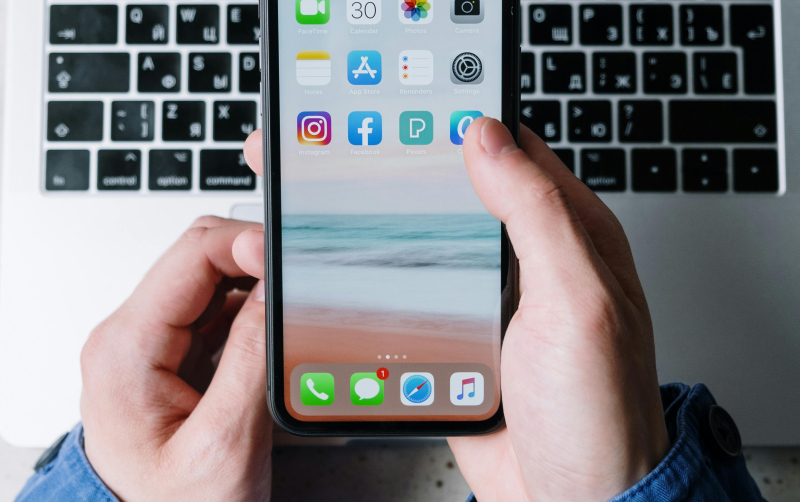Why Is It Important to Have a Mobile App for Business in 2024?

The Shift to Mobile-First Consumers
Mobile technology has fundamentally changed consumer behavior.
- Smartphone Adoption: Over 6.8 billion people worldwide use smartphones, making mobile apps the preferred channel for accessing services.
- Convenience: Apps offer faster, more intuitive interactions compared to websites.
- Example: Retail giants like Amazon report higher conversion rates on mobile apps compared to desktop platforms.
To meet the expectations of mobile-first consumers, businesses must prioritize app development.
Enhanced Customer Engagement
Mobile apps provide a direct line of communication with your customers.
- Push Notifications: Send updates about discounts, product launches, or personalized recommendations.
- Real-Time Interactions: Features like live chat or chatbot support improve response times.
- Examples: Starbucks uses its app to notify users about special deals, driving foot traffic to stores.
By keeping users engaged, apps help build stronger relationships and encourage repeat business.
Improved Brand Visibility and Awareness
A mobile app puts your brand in your customers’ pocket.
- Constant Presence: Your app icon acts as a reminder of your business every time users unlock their phones.
- Professional Image: A sleek, user-friendly app reflects positively on your brand’s credibility.
- Example: Businesses like Domino’s Pizza have increased brand recognition by offering easy app-based ordering.
An app ensures that your brand stays top-of-mind in a crowded marketplace.
Competitive Advantage in a Crowded Market
As more businesses invest in mobile apps, those without one risk falling behind.
- Meeting Expectations: Consumers expect businesses to have apps, especially in retail, hospitality, and entertainment.
- Standing Out: An app sets you apart by offering convenience, personalization, and value-added features.
- Example: Small cafes using loyalty apps can compete with larger chains by fostering customer loyalty.
In a competitive landscape, a mobile app can give you an edge.
Better Customer Experience (CX)
Apps provide a seamless and intuitive experience, improving user satisfaction.
- Faster Access: No need to navigate complex websites; apps offer one-click solutions.
- Tailored Features: Personalization tools help users find what they need effortlessly.
- Example: Food delivery apps like Uber Eats offer real-time order tracking for enhanced CX.
A great user experience increases retention and boosts customer loyalty.
Increased Sales and Revenue Opportunities
Mobile apps are powerful tools for driving sales.
- E-Commerce Growth: Apps make online shopping easy and secure.
- In-App Purchases: Many apps offer subscriptions or premium features to boost revenue.
- Statistics: Apps account for over 70% of global e-commerce sales, highlighting their importance for businesses.
With the right strategy, a mobile app can become a key revenue generator.
Data Collection and Insights
Apps provide valuable data about customer behavior and preferences.
- User Analytics: Track how customers interact with your app to identify trends and improve services.
- Personalized Marketing: Use data to send targeted promotions based on individual interests.
- Example: Fitness apps use data to suggest tailored workout plans, enhancing user value.
Data-driven decisions lead to better marketing strategies and improved customer satisfaction.
Building Customer Loyalty
Mobile apps are ideal for fostering loyalty among customers.
- Rewards Programs: Offer points, discounts, or exclusive access through your app.
- Gamification: Keep users engaged with streaks, badges, or progress tracking.
- Example: Starbucks Rewards encourages repeat visits with app-exclusive perks.
Loyalty features not only retain customers but also encourage word-of-mouth referrals.
Streamlined Business Operations
Apps can help businesses manage operations more efficiently.
- Order Management: Streamline booking, purchasing, or delivery processes.
- Automation: Reduce repetitive tasks with AI-powered features.
- Integration: Sync your app with CRM systems for better customer management.
Efficiency saves time and resources, allowing you to focus on growth.
Reaching a Global Audience
Mobile apps break down geographical barriers, helping you expand your reach.
- App Stores: Platforms like Google Play and the App Store provide global distribution.
- Localization: Translate content to appeal to international users.
- Example: Apps like Airbnb successfully target global audiences with localized features.
A mobile app ensures your business is accessible 24/7 to users worldwide.
Conclusion
In 2024, a mobile app is more than a tool—it’s a strategic asset for business growth. From improving customer engagement to driving revenue and operational efficiency, apps offer countless benefits. Whether you’re a small business or a large enterprise, investing in a mobile app ensures you stay relevant in an increasingly mobile-driven world. Don’t get left behind—embrace the power of mobile apps to future-proof your business.
FAQs
- Why is mobile app development important for small businesses?
Mobile apps help small businesses enhance customer engagement, build loyalty, and compete with larger companies.
- What industries benefit the most from having a mobile app?
Industries like retail, healthcare, food delivery, fitness, and entertainment see significant benefits from mobile apps.
- How do mobile apps improve customer retention?
Features like loyalty programs, personalized recommendations, and push notifications keep users engaged and returning.
- What are the costs associated with developing a business app?
Costs depend on app complexity, features, and development team expertise but range from $10,000 to $100,000 or more.
- How can I ensure my app stands out in the app store?
Focus on user-friendly design, unique features, and strong app store optimization (ASO) strategies.






